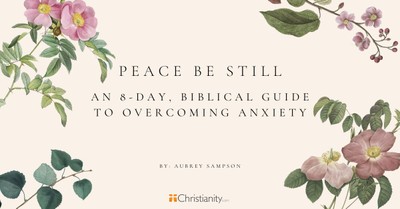March Madness and Anxious Times
South Carolina defeated Mississippi State last night in the NCAA women’s basketball championship game. This after Mississippi State ended Connecticut’s historic 111-game winning streak Friday night with a stunning shot at the overtime buzzer. Gonzaga plays North Carolina tonight in the much-anticipated men’s title game.
March Madness has been a welcome distraction from the news. CNN is reporting today that Chicago police have arrested a fourteen-year-old boy in a group sexual assault on a teenage girl that was broadcast on Facebook Live. Police are looking for as many as six people who were shown in the video of the assault.
Former Defense Secretary Ash Carter told a reporter yesterday that a preemptive strike against North Korea could lead to an invasion of South Korea. London is now home to more than 423 mosques and is, according to one Islamic preacher, “more Islamic than many Muslim countries put together.”
What many of us feel as we read the news is more anxiety than fear. Theologian Paul Tillich distinguished between the two: fear has a specific object, while anxiety is more ambiguous and amorphous. We prefer the former to the latter—we can define and hopefully defeat our enemy, but it’s hard to defeat a feeling. Many have a general sense that things are not going well (only 38 percent of likely voters say the US is headed in the right direction) but don’t know what to do about it.
In this context, a statement I read recently has been deeply encouraging.
In Psalm 90, Moses declared to the Lord: “From everlasting to everlasting, you are God” (v. 2). When I read his assertion, I made this note in my journal: “This is a present-tense fact. We tend to associate the reality of God with times when we experience his reality personally. When we do not see or feel him, we wonder if he’s really there. But if God is God, he cannot change or he would at times be less than God. Thus, he must always be what we sometimes know him to be.”
Then I considered the psalm in the light of its author. God was no less God when Moses was a fugitive in the wilderness than when he was leading the people across the Red Sea. He was no less God when the Jews were enslaved in Egypt than when they were poised to conquer the Promised Land. He redeems our challenges by using them to prepare us for “an eternal weight of glory beyond all comparison” (2 Corinthians 4:17). But we must “look not to the things that are seen but to the things that are unseen” (v. 18).
We know to take our fears to God by faith, naming them specifically and trusting them to our Father’s power and provision. But we sometimes fail to take our anxiety to him as well. His command is clear: “Do not be anxious about anything, but in everything by prayer and supplication with thanksgiving let your requests be made known to God” (Philippians 4:6). How will he respond? “And the peace of God, which surpasses all understanding, will guard your hearts and your minds in Christ Jesus” (v. 7).
In anxious times, the peace of God may be our most persuasive witness. Is your heart at peace today? If not, why not?
Publication date: April 3, 2017
For more from the Denison Forum on Truth and Culture, please visit www.denisonforum.org.
Do you want to live a life in whole-hearted pursuit of loving God and others?
Read today's First15 at www.first15.org.

















